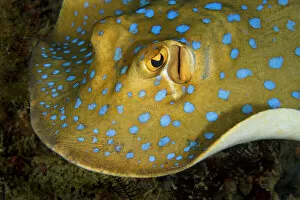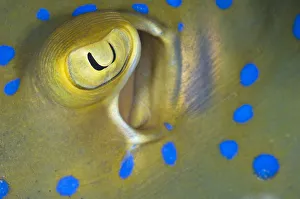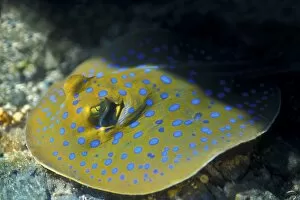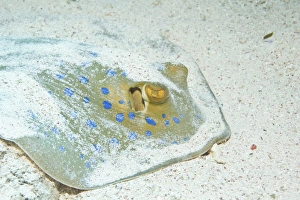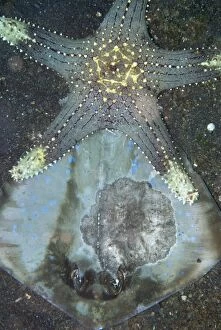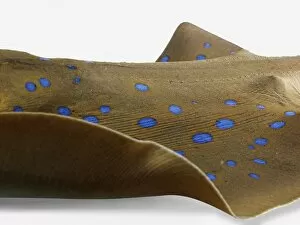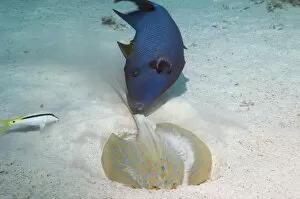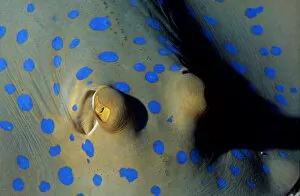Taeniura Lymma Collection
"Exploring the Mysteries of the Pacific: Taeniura lymma, the Bluespotted Ribbontail Ray" As night falls over Triton Bay in West Papua, Indonesia
All Professionally Made to Order for Quick Shipping
"Exploring the Mysteries of the Pacific: Taeniura lymma, the Bluespotted Ribbontail Ray" As night falls over Triton Bay in West Papua, Indonesia, a mesmerizing sight unfolds beneath the surface of the Pacific Ocean. A graceful creature known as Taeniura lymma, or the Bluespotted Ribbontail Ray, embarks on its nocturnal quest for food amidst vibrant coral reefs. With its eye-catching blue spots and elegant ribbon-like tail, this ray species captures our attention wherever it roams. From Sipadan Island to Papua New Guinea and even Egypt's Red Sea, these rays leave their mark on diverse marine ecosystems. Intriguing details emerge when we take a closer look at their eyes and spiracles. These unique features allow them to detect prey and breathe while partially buried in sandy seabeds or hidden among corals, and is through such adaptations that they have become masters of survival in their underwater realm. Interactions with other sea creatures also shape their existence. The Honeycomb Starfish scavenges upon remnants left behind by these majestic rays after feeding – an intricate dance between predator and prey within nature's grand tapestry. Whether resting beneath table corals or near vibrant reef structures teeming with life, Taeniura lymma showcases its peaceful demeanor as it coexists harmoniously with its surroundings. Even beyond natural habitats lies another facet of human interaction - fish markets in Indonesia offer glimpses into local communities' reliance on marine resources for sustenance and livelihoods. Here too can one find traces of this captivating species amongst an array of aquatic treasures. Through these snapshots from across continents, we gain insight into the enchanting world inhabited by Taeniura lymma – a testament to both nature's beauty and humanity's interconnectedness with our oceans.

